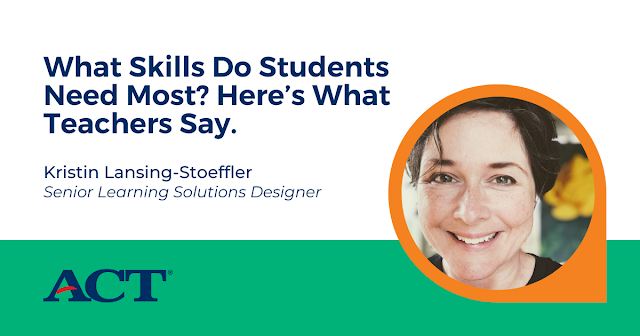Our world is changing, and ACT must change with it. Our commitment to our mission requires that we meet the changing needs and expectations of students and their families, educators, employers, and employees.
It’s with this in mind that we are taking steps to offer the ACT test online for test takers on national test dates. ACT has been a leader in online testing for years. We’ve been offering the test online for state and district testers since 2016, and for test takers internationally since 2018. We recognize the growing demand for flexible testing options, not only for today's students but for those who support them. We want to give students greater autonomy over their testing experience, which is why our goal is to provide students with choice, flexibility, and accessibility, all while maintaining the high standards for which we are known.
What’s happening?
Online testing will be available in December 2023 as a limited pilot for 5,000 testers at a select number of test centers. Registration for the first ACT online national test in December will open this July. We have chosen to pilot the test to allow for controlled implementation, to consider feedback, and to ensure the best possible testing experience for students. We will expand capacity to include more test centers for students as we move through 2024.
What’s changing?
The ACT test is not changing. Our decision to offer students the choice to take the ACT their way, whether that’s online or on paper, means that students have a choice in the testing experience that best suits their unique learning style and preferences. The online option is an important step toward expanding equitable and inclusive testing experiences for all students.
- ACT will begin offering students the choice to take the ACT online, starting with a limited pilot of 5,000 testers in select U.S. test centers launching in December 2023. Registration for the pilot program will be available in July 2023. Paper testing will continue to be available.
- ACT will expand operational capability for its online offering as we move through 2024.
- ACT's online testing experience provides students with more choice, flexibility, and accessibility while maintaining the reliable and valid standards of the ACT test.
- ACT’s online option allows us to provide additional accessibility features, including support for screen reader users, text-to-speech functionality, zoom, and answer masking. These are not "features" for many of our students, but necessities for equal access. By offering an online option, we are able to help more students meet their goals for academic and career success.
The ACT test is staying the same for the purposes of expanded mode of delivery, whether students choose the online version or paper and pencil. Registration for both options will continue through the MyACT portal.
- Score reporting will be identical regardless of testing mode and the release of score reports will remain consistent for both testing options.
- ACT testing fees will remain the same for both the online and paper and pencil option.
- ACT’s fee waiver program will continue to be available to students who qualify for it, regardless of their choice of testing modality.
Learn more about ACT’s online national test experience here.



